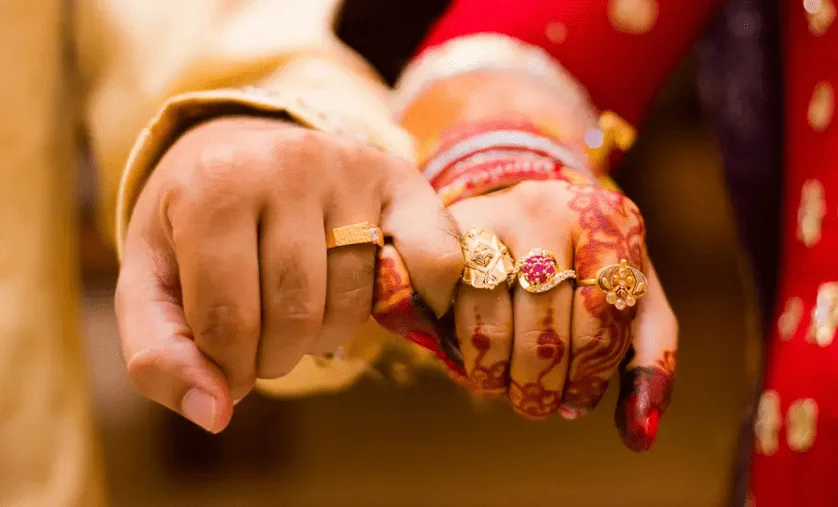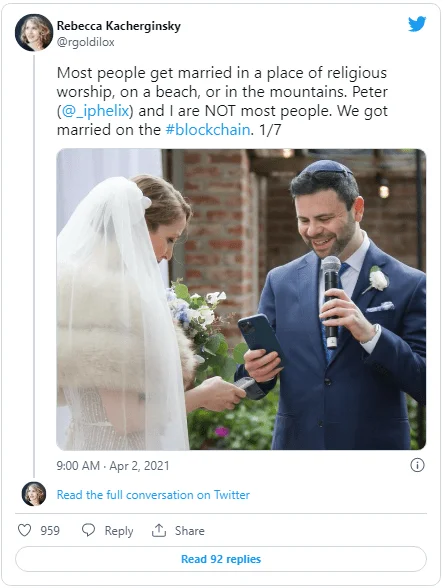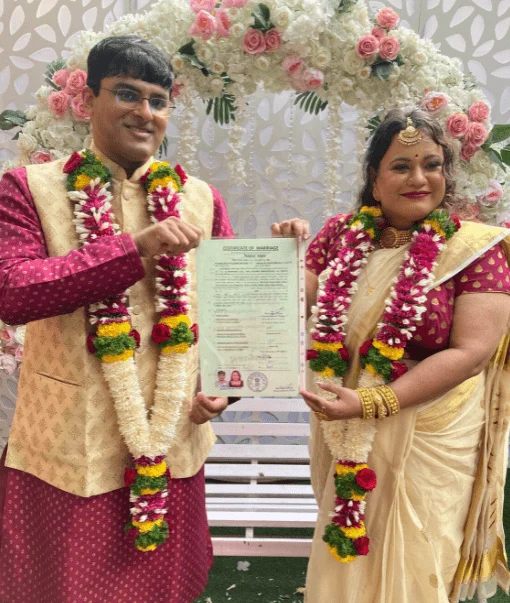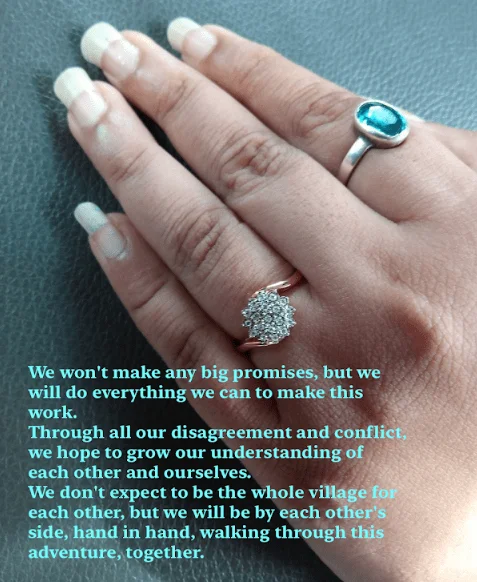One of the fun and exciting ways to utilize blockchain technology is to get married on the chain. Blockchain marriages are becoming popular, a young couple from India used nonfungible tokens (NFTs) to digitize their love for each other till eternity on the Ethereum (ETH) blockchain.

Shruti Nair and Anil Narasipuram, a newlywed couple from Pune, India, decided to take their courtship to the next level by organizing a blockchain wedding. The husband, according to Anil:
“I read some articles on how people in other countries were doing blockchain marriages and it motivated me.”
Rebecca Kacherginsky, a staff product designer at Coinbase, is another renowned crypto entrepreneur who has followed the pattern.

Marriage with a digital priest
The couple was accompanied online by Anoop Pakki, who was in charge of minting the NFT a.k.a. the digital priest — as part of the Indian blockchain wedding.
“After gaining the blessings of our digital priest, we read out the vows, and I confirmed the transaction to send the NFT to my wife’s digital wallet,” Anil explained. “The transaction took a few minutes (and roughly $35 in ETH gas fees), after which our digital priest called us husband and wife!”

The couple unanimously read the vow, “We won’t make any big promises, but we will do everything we can to make this work. Through all our disagreement and conflict, we hope to grow our understanding of each other and ourselves. We don’t expect to be the whole village for each other, but we will be by each other’s side, hand in hand, walking through this adventure, together.”

The wedding vow, which was originally in the form of a digital image, was later minted as an NFT on the OpenSea platform by the digital priest. The NFT was described as follows:
“This contract is between Shruti Sathian Nair, born March 17, 1988, and Anil Mohan Narasipuram, born October 11, 1986. The parties to this agreement are hereby declared husband and wife, on Nov 15 2021 and to have to hold, in sickness and in health, for now and in perpetuity.”
India’s CBDC will tax virtual and digital assets
During the Union Budget 2022, Indian finance minister Nirmala Sitharaman proposed the launch of a central bank digital currency (CBDC) as well as a 30% crypto tax by 2022–23.
Sitharaman stated that the CBDC’s introduction will give the digital economy a “huge boost,” as well as the possibility of a more efficient and less expensive currency management system. Her suggestion was as follows:
“Any income from transfer of any virtual digital asset shall be taxed at the rate of 30%. No deductions in respect of any expenditure or allowance shall be allowed while computing such income, except the cost of acquisition.”
